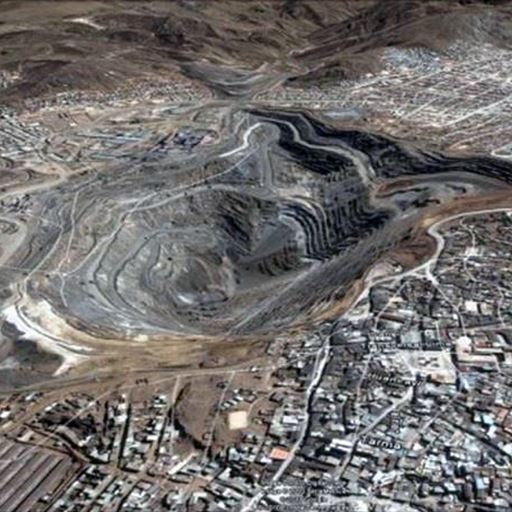Essex students have used open source investigation techniques to verify claims that the management of a Peruvian mining complex were aware of their role in long-term, “extreme” environmental pollution, resulting in significant health impacts for the local population.
The students' findings may have consequences for one of the largest companies in the world, Glencore, as the report to which they contributed supports an argument for divestment in the mine's owners, on ethical grounds.
The students, from the Digital Verification Unit, based at the University of Essex’s Human Rights Centre Clinic, partnered with the Center for Climate Crime Analysis (CCCA) to conduct an investigation into the human rights and environmental impact associated with the Cerro de Pasco mine, in central Peru.
The Essex team - Angela Patiño Palacios, Martin Kainz, Rebeca Nader López and Tanya Roberts Davis – compiled evidence from press reports and social media, and contacted journalists and those working on the ground, to confirm who knew what, in terms of the pollution and its links to local mining activity.
The students then subjected their findings to legal analysis.
In a joint statement, the Essex students said: "It is deeply encouraging to see our work on the human rights impacts of mining operations in Cerro De Pasco contribute to this thorough and most important report.”
“We are proud to have been part of this collaboration, working with partners including Source International and the University of Berkeley's Human Rights Center.
“We would like to thank Dr Daragh Murray for his ongoing support and the Center for Climate Crime Analysis for taking forward this initiative."
The Essex Digital Verification Unit were originally invited to collaborate on an existing investigation into Cerro de Pasco by the CCCA. The students’ subsequent work contributed to the CCCA being invited to produce a report for The Council of Ethics of the Norwegian Government Pension Fund Global, the largest sovereign wealth fund in the world.
Glencore has held a majority stake in Volcan, the company that operates the Cerro de Pasco mine, since 2017. The CCCA report notes that, since Volcan took over stewardship of the mine in 1999, contamination has increased, with lead, arsenic, chrome, manganese, iron and aluminium released into the environment at levels in excess of those permitted under Peruvian law.
The city’s drinking water has been contaminated and heavy metals have entered the food chain, with the impact on health increased by the inhalation of the dust created by local mining activity.
A 2018 study, focusing on children from one neighbourhood, found that 78% of the children studied had experienced at least one symptom of heavy metal poisoning. These symptoms include “nose bleeds, chronic gastrointestinal diseases, dermatological alterations, constipation, reduced vision, depression and other behaviour disorders.” Life expectancy is low and infant mortality rates are high in Cerro de Pasco.
Cerro de Pasco, a city of approximately 70,000 inhabitants, sits on a plateau 4,380 metres above sea level. The city encircles the mining crater, with the mine’s ore stockpiles and waste rock dumps also in the vicinity.
The Center for Climate Crime Analysis is a non-profit organization, established to trigger and support judicial action against environmental destruction or other illegal activities that contribute to climate change.
In 2017, Glencore, one of the world’s largest companies, acquired a majority stake in the Cerro de Pasco mine’s operator, Volcan Compañia Minera S.A.A. (Volcan). The Norwegian Government Pension Fund Global invests in Glencore.

.jpg?mh=500&mw=500&hash=6568B6C9CCF5290A596BEF6678B6AD0E)




